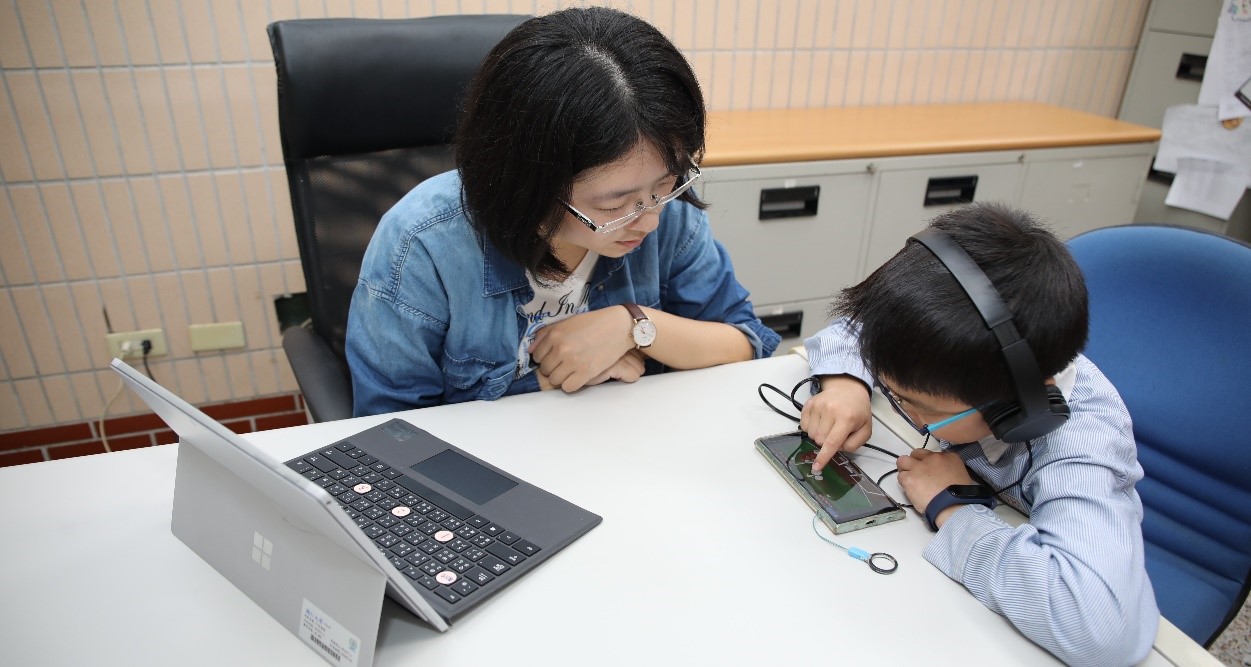Featured Scientist

Yu-Chun Chen, Ph.D.
Associate Professor
"Little Ears: A Home-Based Phonological Training App for Mandarin-Speaking Children with Developmental Language Disorder"
Developmental Language Disorder (DLD) affects approximately 7% of children and is charac-terized by persistent difficulties in vocabulary acquisition and phonological processing, despite oth-erwise typical development. Among Mandarin-speaking children with DLD, tone perception and phonological representation pose unique challenges due to the tonal nature of the language. To ad-dress these specific linguistic needs, we developed “Little Ears”, a home-based, gamified phonologi-cal training app designed to improve phonological awareness and vocabulary skills. This study, con-ducted in collaboration with Fu Jen Catholic University Hospital, evaluated the app's effectiveness in a randomized controlled trial.
Thirty-three Mandarin-speaking preschoolers aged 5–6 years with DLD were randomly assigned to an experimental group (app training) or a control group (e-book reading). The intervention lasted 12 weeks, during which children in the experimental group used the app at home under parental supervi-sion. The app features adaptive levels of difficulty, multiple speaker voices, and engaging tasks tar-geting tone and consonant discrimination. Standardized and experimental assessments were conduct-ed pre- and post-intervention, focusing on phonological awareness, speech perception, and vocabulary learning.
Findings showed that children in the experimental group exhibited significant improvements in phonological awareness (syllable deletion tasks) and receptive vocabulary (WPPSI listening compre-hension subtest). App usage data indicated high engagement, with children completing an average of 39 sessions and achieving an average in-app accuracy of 83%. These results provide promising evi-dence that the “Little Ears” app—an accessible, linguistically tailored, and technologically advanced intervention—can support language development in Mandarin-speaking children with DLD. The suc-cessful collaboration with a clinical partner highlights the feasibility of integrating digital tools into home-based therapy. Ongoing analysis will further explore individual response patterns and long-term outcomes to inform future large-scale implementation.
Keywords:Developmental language disorder (DLD), speech perception, app-based phonological training, vocabulary
4 views